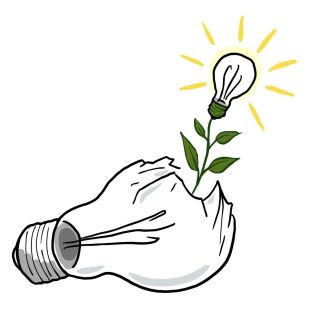What Exactly Do We Learn from Failure? New research shows that failure can teach us proverb-like simple rules. Reviewed by Tyler Woods

KEY POINTS-
- Learning from failure can be catalyzed by asking ourselves three simple questions.
- Failure illuminates what we need to unlearn, what we need to learn instead, and what we need to do about it.
- This triple insight can be articulated into simple rules that sound like proverbs.
- Learning from failure is more powerful and lasts longer.

We humans don’t learn as easily as we should. We learn better from direct experience than from others. And we learn better from failure than from success. Why is that? What exactly do we learn after things go south? And, most importantly, can we catalyze our learning from failure? Our recent research suggests that we can.
Aside from what evolution taught us as a species, we continuously learn throughout our lives, either from direct experience or socially, from others. Learning socially—from those close to us, from books, from peers, or from experts—should be our go-to strategy: it’s easier, cheaper, and we have billions of humans on the planet to use as information sources. Unfortunately, what we learn from others does not stick so easily, so the important things we must learn by ourselves.
Why does that happen? As adults, we rarely adopt a new perspective on a blank slate; more often than not, we replace an old perspective with a new one. And we do not find this comfortable; old perspectives tend to cling to us way past their shelf life.
There are many psychological and social mechanisms that prevent us from changing our minds, from confirmation bias (we tend to consider just the evidence or discourse that confirms what we already know and to dismiss what contradicts us) and the recently questioned "backfire effect" (when somebody challenges our deep-rooted belief, it grows even stronger) to groupthink (we do not speak up against the dominant view of the group if nobody else spoke up before us).
Because unlearning an old perspective and then learning a new one takes us out of our comfort zone, we often reject what others try to teach us. We adopt and internalize much better what we learn from direct experience. One of the CEOs we interviewed for our research claimed that “even if the present me would have traveled in time 12 years ago to teach my former self this lesson, I wouldn’t have adopted it, because you need to experience things directly before you learn.”
Not only must we experience a situation ourselves, but, unfortunately, that situation must be painful to teach us something. As one of our respondents admitted, “All the things I have learned, I learned after banging my head against the wall.” A study published in 2010 by Madsen and Desai also shows that failure teaches us better than success. Moreover, it shows that lessons from success are much easier forgotten.
OK, so we learn better from our own failures than from what others tell us. But this direct learning also challenges our existing perspectives and, therefore, feels uncomfortable. So, is learning from failure easy? How does it happen? And what exactly do we learn?
Our research focuses on how CEOs learn their lessons, but most of these findings can be easily generalized to how we all learn from failure. The process we uncovered is complex, it involves a triple insight, an interplay between intuition and reflection, and a rollercoaster of feelings. It ends with us learning sets of proverb-like simple rules. The fact that when we learn, we learn sets of simple rules builds upon a stream of research conducted by Christopher Bingham, Kathleen Eisenhardt, and their collaborators.
Learning starts with a failure that challenges the way we thought things worked. The lesson does not appear immediately because, at first, we cannot make sense of what happened. And this bothers us. What was wrong with our perspective at the time? What did not function? We often agonize over what happened; we play it over and over in our head, and we talk about it with anyone willing to listen in order to make sense, to understand which assumption proved to be flawed and needs to be unlearned.
And the insight finally comes, catalyzed by a discussion, a book, or a similar situation that sparks analogical thinking. It doesn’t always manifest itself as an “aha moment.” It sometimes becomes a longer “aha period,” as one interviewee put it. The aha doesn’t come alone but as a triple insight, illuminating us on what we need to unlearn, what we need to learn instead, and what we need to do about it. We usually articulate these second and third insights into simple rules, proverbs we make for ourselves to better capture the lesson from failure.
Let me illustrate the triple insight with a personal example, which, unfortunately, is not hypothetical: a few years ago, I pushed too hard during my training for a long-distance triathlon, and when my knee started hurting, I ignored it, continued my preparation, and ran the course. I arrived second to last in the field, with a limp, and soon after, I had to go through surgery. That was the failure that taught me a valuable lesson, the trigger for an abrupt change in perspective.
How did the triple insight work in this case? The first insight taught me that, before, I thought I could push my body without limits. Clearly, that assumption, which proved to be wrong, was the culprit that led to my injury, so I needed to purposefully unlearn it: “My body is definitely not unbreakable.” The second insight taught me what principle is true instead, which I summarized into a guiding simple rule: “I should listen to my body and treat it with respect, like a friend, not like a slave.” Finally, the third insight taught me how to apply this new principle in my everyday training. I articulated it into a more pragmatic, simple rule: “At the first pain, I pay attention. At the second pain, I stop.”
How can we catalyze our learning from failure? Based on the triple insight framework, we can make better sense of our negative experiences and transform them into valuable lessons by trying to understand three things: what assumption proved not to be true, what is true instead, and what do we need to do about it. We can do this by completing the following phrase:
“Before the failure, I thought that (…),
but then I realized that (…);
now, I do (…).”
Give it a try. Think of a recent failure and try to make better sense of it. It only takes a minute.
Afterward, if we articulate our new triple lesson into a short and catchy personal proverb, chances are that we will remember it better. And later, after we test and reinforce the lesson, we can also share it with those around us who might benefit from our experience. If only we could make them listen.
- Questions and Answers
- Opinion
- Motivational and Inspiring Story
- Technology
- Live and Let live
- Focus
- Geopolitics
- Military-Arms/Equipment
- الحماية
- Economy
- Beasts of Nations
- Machine Tools-The “Mother Industry”
- Art
- Causes
- Crafts
- Dance
- Drinks
- Film/Movie
- Fitness
- Food
- الألعاب
- Gardening
- Health
- الرئيسية
- Literature
- Music
- Networking
- أخرى
- Party
- Religion
- Shopping
- Sports
- Theater
- Health and Wellness
- News
- Culture

